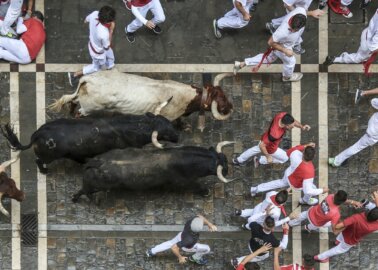We Did It! Pharma Giant Bristol-Myers Squibb Bans Forced Swim Test
What a wonderful way to start the new decade! One of the largest pharmaceutical companies in the world – Bristol-Myers Squibb – has confirmed a ban on the cruel forced swim test.

The resounding victory for small animals comes after more than a year of campaigning by PETA and our international affiliates that included nearly 800,000 e-mails from supporters around the globe.
Forced swim tests – in which small animals are dropped into inescapable beakers of water and made to swim to keep from drowning – claim to shed light on human depression. However, they don’t accurately predict whether a drug will work as a human antidepressant: they can yield positive results for compounds that aren’t prescribed as human antidepressants, such as caffeine, and negative results for compounds that are.
According to papers published by Bristol-Myers Squibb experimenters, more than 1,600 animals – 748 gerbils, 698 mice, and 192 rats – were used in these tests between 2008 and 2017. Their suffering didn’t lead to the release of even one new drug to the market.
Bristol-Myers Squibb joins other leading pharmaceutical companies – including Pfizer, Johnson & Johnson, Roche, AbbVie, Boehringer Ingelheim, Sage Therapeutics, AstraZeneca, and Novo Nordisk A/S – that have banned the forced swim test. This victory means that no more small animals will be terrified in near-drowning experiments in these laboratories – and that companies agree with PETA that it’s time to invest in humane, advanced, animal-free research methods that might actually help human patients.
The bottom line: the forced swim test is cruel, and it’s bad science. These experiments do nothing more than terrify animals and delay the development of effective treatments that are so desperately needed.
What You Can Do
Pharma giant Eli Lilly has refused to enact a ban on this cruel and useless test. Below, you can contact the company to let it know that experiments on animals are unethical and a waste of both resources and lives.



